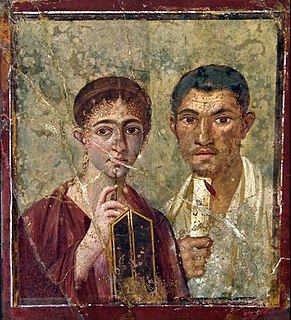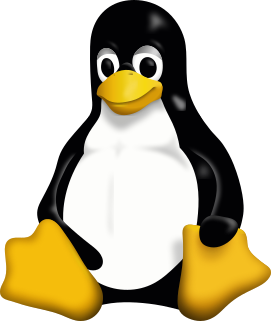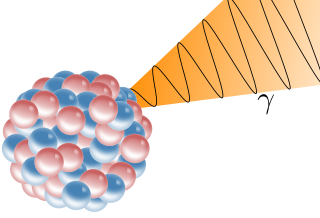
Ad hominem, short for argumentum ad hominem, is a fallacious argumentative strategy whereby genuine discussion of the topic at hand is avoided by instead attacking the character, motive, or other attribute of the person making the argument, or persons associated with the argument, rather than attacking the substance of the argument itself. The terms ad mulierem and ad feminam have been used specifically when the person receiving the criticism is female.
The Doppler effect is the change in frequency or wavelength of a wave in relation to an observer who is moving relative to the wave source. It is named after the Austrian physicist Christian Doppler, who described the phenomenon in 1842.

Electricity generation is the process of generating electric power from sources of primary energy. For electric utilities in the electric power industry, it is the first stage in the delivery of electricity to end users, the other stages being transmission, distribution, energy storage and recovery, using the pumped-storage method.

Free software or libre software is computer software distributed under terms that allow users to run the software for any purpose as well as to study, change, and distribute it and any adapted versions. Free software is a matter of liberty, not price: users—individually or in cooperation with computer programmers—are free to do what they want with their copies of a free software regardless of how much is paid to obtain the program. Computer programs are deemed free insofar as they give users ultimate control over the first, thereby allowing them to control what their devices are programmed to do.

The MIT License is a permissive free software license originating at the Massachusetts Institute of Technology (MIT). As a permissive license, it puts only very limited restriction on reuse and has, therefore, an excellent license compatibility. The MIT license permits reuse within proprietary software provided that all copies of the licensed software include a copy of the MIT License terms and the copyright notice. The MIT license is also compatible with many copyleft licenses, such as the GNU General Public License (GPL); MIT licensed software can be integrated into GPL software, but not the other way around.

The Nile is a major north-flowing river in northeastern Africa, and is the longest river in Africa and in the world, though some sources cite the Amazon River as the longest. The Nile, which is about 6,650 km (4,130 mi) long, is an "international" river as its drainage basin covers eleven countries, namely, Tanzania, Uganda, Rwanda, Burundi, the Democratic Republic of the Congo, Kenya, Ethiopia, Eritrea, South Sudan, Republic of the Sudan and Egypt. In particular, the Nile is the primary water source of Egypt and Sudan.
In computing, source code is any collection of code, possibly with comments, written using a human-readable programming language, usually as plain text. The source code of a program is specially designed to facilitate the work of computer programmers, who specify the actions to be performed by a computer mostly by writing source code. The source code is often transformed by an assembler or compiler into binary machine code understood by the computer. The machine code might then be stored for execution at a later time. Alternatively, source code may be interpreted and thus immediately executed.

Network address translation (NAT) is a method of remapping one IP address space into another by modifying network address information in the IP header of packets while they are in transit across a traffic routing device. The technique was originally used as a shortcut to avoid the need to readdress every host when a network was moved. It has become a popular and essential tool in conserving global address space in the face of IPv4 address exhaustion. One Internet-routable IP address of a NAT gateway can be used for an entire private network.

In the study of history as an academic discipline, a primary source is an artifact, document, diary, manuscript, autobiography, recording, or any other source of information that was created at the time under study. It serves as an original source of information about the topic. Similar definitions can be used in library science, and other areas of scholarship, although different fields have somewhat different definitions. In journalism, a primary source can be a person with direct knowledge of a situation, or a document written by such a person.

Open-source software (OSS) is a type of computer software in which source code is released under a license in which the copyright holder grants users the rights to study, change, and distribute the software to anyone and for any purpose. Open-source software may be developed in a collaborative public manner. Open-source software is a prominent example of open collaboration.

Water pollution is the contamination of water bodies, usually as a result of human activities. Water bodies include for example lakes, rivers, oceans, aquifers and groundwater. Water pollution results when contaminants are introduced into the natural environment. For example, releasing inadequately treated wastewater into natural water bodies can lead to degradation of aquatic ecosystems. In turn, this can lead to public health problems for people living downstream. They may use the same polluted river water for drinking or bathing or irrigation. Water pollution is the leading worldwide cause of death and disease, e.g. due to water-borne diseases.

Free and open-source software (FOSS) is software that can be classified as both free software and open-source software. That is, anyone is freely licensed to use, copy, study, and change the software in any way, and the source code is openly shared so that people are encouraged to voluntarily improve the design of the software. This is in contrast to proprietary software, where the software is under restrictive copyright licensing and the source code is usually hidden from the users.

Linux is a family of open source Unix-like operating systems based on the Linux kernel, an operating system kernel first released on September 17, 1991 by Linus Torvalds. Linux is typically packaged in a Linux distribution.

Free content, libre content, or free information, is any kind of functional work, work of art, or other creative content that meets the definition of a free cultural work.

A gamma ray or gamma radiation, is a penetrating electromagnetic radiation arising from the radioactive decay of atomic nuclei. It consists of the shortest wavelength electromagnetic waves and so imparts the highest photon energy. Paul Villard, a French chemist and physicist, discovered gamma radiation in 1900 while studying radiation emitted by radium. In 1903, Ernest Rutherford named this radiation gamma rays based on their relatively strong penetration of matter; he had previously discovered two less penetrating types of decay radiation, which he named alpha rays and beta rays in ascending order of penetrating power.
Proprietary software, also known as "closed-source software", is a non-free computer software for which the software's publisher or another person retains intellectual property rights—usually copyright of the source code, but sometimes patent rights.

The GNU General Public License is a widely-used free software license, which guarantees end users the freedom to run, study, share and modify the software. The license was originally written by Richard Stallman of the Free Software Foundation (FSF) for the GNU Project, and grants the recipients of a computer program the rights of the Free Software Definition. The GPL is a copyleft license, which means that derivative work can only be distributed under the same license terms. This is in distinction to permissive free software licenses, of which the BSD licenses and the MIT License are widely-used examples. GPL was the first copyleft license for general use.

In scholarship, a secondary source is a document or recording that relates or discusses information originally presented elsewhere. A secondary source contrasts with a primary source, which is an original source of the information being discussed; a primary source can be a person with direct knowledge of a situation, or a document created by such a person.

.NET Framework is a software framework developed by Microsoft that runs primarily on Microsoft Windows. It includes a large class library named as Framework Class Library (FCL) and provides language interoperability across several programming languages. Programs written for .NET Framework execute in a software environment named the Common Language Runtime (CLR). The CLR is an application virtual machine that provides services such as security, memory management, and exception handling. As such, computer code written using .NET Framework is called "managed code". FCL and CLR together constitute the .NET Framework.
Open source is a term denoting that a product includes permission to use its source code, design documents, or content. It most commonly refers to the open-source model, in which open-source software or other products are released under an open-source license as part of the open-source-software movement. Use of the term originated with software, but has expanded beyond the software sector to cover other open content and forms of open collaboration.















